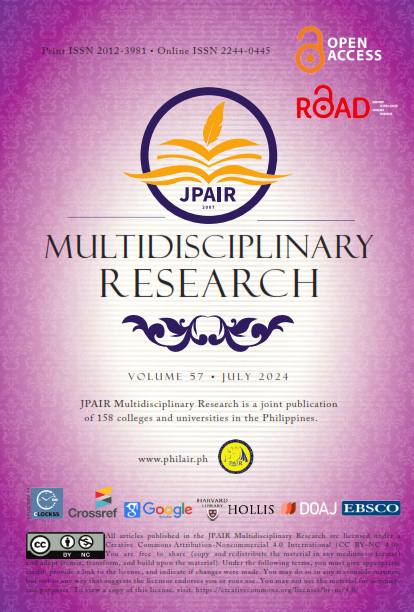Reengineering of Student-Teacher Coding Program for Philippine Grade Schools Curriculum: A Literature Review
DOI:
https://doi.org/10.7719/jpair.v57i1.897Keywords:
Coding Programs, Education, Skill Development, Logical Reasoning, Creativity, Cognitive Development, Curriculum IntegrationAbstract
The main objective of this literature review is to delve into the situation of coding programs in schools in the Philippines, examining both the obstacles they encounter and potential areas for improvement. By analyzing a range of studies, scholarly articles, and relevant literature, this research aims to comprehend how coding programs impact students' acquisition of skills, logical reasoning abilities, creativity, and cognitive development. Moreover, it evaluates approaches and best practices for integrating coding courses into the curriculum while considering the advantages and challenges associated with their implementation. In addition, the study explored how students' academic performance and future job prospects are influenced by their coding skills and proposed strategies to enhance coding programs that promote the development of these abilities. The insights gathered from this analysis provide recommendations for research and valuable insights into designing coding curricula that cater specifically to elementary schools in the Philippines within the broader educational landscape.
Metrics
Downloads
References
Arfé, B., Vardanega, T., & Ronconi, L. (2020). The effects of coding on children’s planning and inhibition skills. Computers & Education, 148, 103807.
Clausen, K. (2019). Tiny Tech: A Pre-Coding Primer for Preschoolers. Children and Libraries, 17(4), 19-21.
Dimitrova, K. (2018). Formation of soft skills in preschool and primary school age-an important factor for success in a globalizing world. KNOWLEDGE-International Journal, 28(3), 909-914.
Downloads
Published
Issue
Section
License
Copyright (c) 2024 Princess Arleen Zamora, Nora Bautista, Joselito O. Carpio

This work is licensed under a Creative Commons Attribution-NonCommercial 4.0 International License.
Open Access. This article published by JPAIR Multidisciplinary Research is licensed under a Creative Commons Attribution-Noncommercial 4.0 International (CC BY-NC 4.0). You are free to share (copy and redistribute the material in any medium or format) and adapt (remix, transform, and build upon the material). Under the following terms, you must give appropriate credit, provide a link to the license, and indicate if changes were made. You may do so in any reasonable manner, but not in any way that suggests the licensor endorses you or your use. You may not use the material for commercial purposes.

























